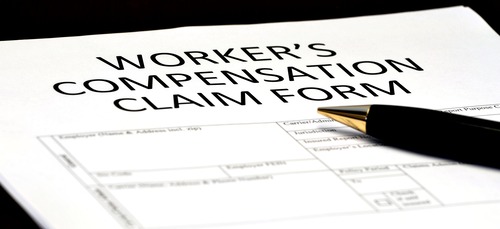How Can Social Media Use Hurt Your Workers Compensation Claim?
- Workers' Compensation
Any Miami workers compensation lawyer will start the first meeting after accepting a case with this strong advice: stay away from social media. And the usual reply is: but what has social media to do with my workers compensation claim? In short – a lot.
But since this is an issue that affects so many cases and leads to unhappy results for injured workers, we believe it is time to give a detailed explanation. The fact is that once you file a workers compensation claim, you will be monitored. Some insurance companies will go as far as hiring detectives to follow you around. But most of them will find sufficient evidence against you on your social media profiles.
Social Media Is a Public Forum and Can Be Used as Evidence Against You
When you open a social media profile, you accept several terms and conditions. One of them is that your personal data and anything you post can be accessed by others. Even if you apply the tightest privacy settings, your posts can still be seen by others outside your circle of friends.
As your Miami workers compensation lawyer can tell you, in some cases the lawyer representing your employer’s insurance company can use various specialized tools to access your posts. If they believe that the content is relevant to proving their case against you, they can even obtain a court order and get the information straight from the social media platform owners.
Ways in Which Social Media Can Hurt Your Workers Compensation Claim
Any insurance company works on the same principle: maximizing their profits by limiting the amounts of money they pay in claims. Since the worker’s fault is not a factor in workers compensation claims in Florida, insurance adjusters will try to prove that:
- You are exaggerating your injuries.
- You already suffer from a pre-existing condition.
- You were injured outside the work hours.
To this end, they will scour your social media pages looking for:
1. Videos and Images Showing You Injured Before the Accident Date
A false filing of workplace injuries is a serious offense and it can get you in a lot of legal trouble. The basic rule of eligibility for filing a workers compensation claim is being injured while you were on the job. Even an injury suffered during the lunch break is ineligible.
So, let us imagine that you filed a claim for an accident at the workplace where you hurt your back. During the investigation, the insurance company finds a video from the previous day where you took a bad fall while playing basketball with your kids. This video will be used as evidence to dismiss your claim.
2. Posts Where You Downplay Your Injuries
No one wants to appear as a crybaby before their friends on social media. Thus, you may post a few photos where you are trying to appear smiling and relaxed, accompanied by a few words saying that you’re doing better.
This post will come back to haunt you months later when you file a complaint for unfair dismissal of your claim. The insurance company will argue that you are not as injured as you state in your accident report.
3. Posts Where You Discuss Your Workers Compensation Claim
Social media is not the place to keep your family up to date with your claim. When you post about what your Miami workers compensation lawyer said, you are offering your employer an insight into the tactic used in your case.
This will give them plenty of time to reconsider their position and adopt a different stance with the purpose of reducing the value of your claim or dismissing it altogether.
Best Practices Regarding Social Media Use During a Workers Comp Claim
Here are some simple and easy guidelines that will help you protect your chances of winning workers comp benefits.
1. Make Your Social Media Accounts Private
After filing your workers compensation claim, make all your social media accounts private. As shown above, even posts from the previous day can be used against you by the insurance company.
Of course, first of all, remember to file a claim only if you were truly injured during your job duties.
2. Do Not Accept New Friend Requests
One of the simplest methods for bypassing the privacy setting is becoming someone’s friend on social media. Many insurance adjusters or people working for them will do that and carefully scroll through all your posts, retaining what they can use against you.
For this reason, you should not accept any friend requests during a pending workers compensation claim. Even if you know the person in another capacity, you have no idea what they are doing for a living and whom they are working for.
3. Do Not Delete Posts
Once you posted something you shouldn’t have, the best solution is to add a comment that will clarify the situation. But do not delete that post. An insurance adjuster may have already taken a screenshot. Later on, they will accuse you of trying to destroy evidence of insurance fraud.
This is something that an insurance appeal commission will not treat kindly. Even if it is not a highly incriminatory post, the idea remains: you tried to cover your tracks. Thus, you will likely lose the appeal.
4. Ask Your Friends to Avoid Posting About You During the Claim Process
Last but not least, tell your family members and friends to refrain from:
- Posting photos and videos including you
- Sharing status updates about your injuries or workers compensation claim
- Tagging you in photos and videos.
There are cases when someone can get a claim dismissed even if they do not have social media accounts. Their friends’ posts can also be used as evidence against them.
Follow the Advice of Your Miami Workers Compensation Lawyer!
Once a lawyer at our firm has accepted your case, you can be assured that they will do their best to get your workers compensation claim approved. However, you must also help your lawyer by following a few simple rules.
Probably the most important rule is to stay away from social media while your case is pending. During this period, your employer’s insurance is looking for any evidence that will give them the right to dismiss your claim.
If you were injured on the job, schedule a free case evaluation with an experienced Miami workers compensation lawyer and follow our advice!







